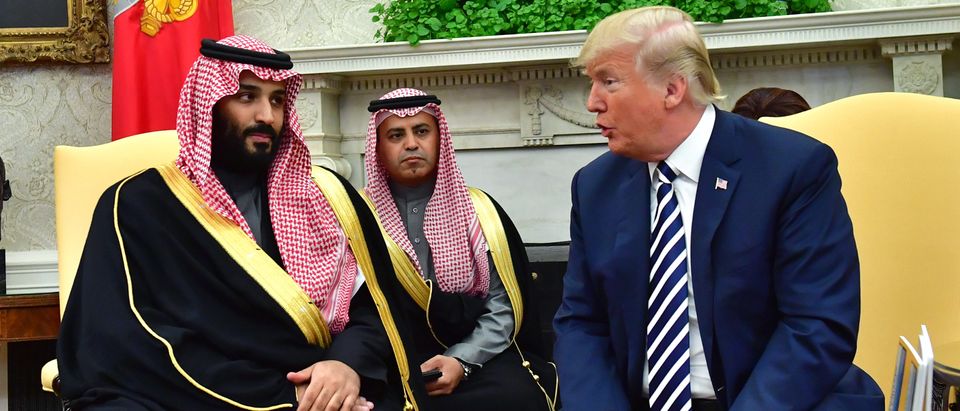Consistency, whether in the preparation of restaurant fare or the implementation of military policy, is not only desirable but essential, if success is the goal. At this juncture in his presidency, Donald Trump appears to lack this important ingredient. Nowhere is this more apparent than in our policies in the Middle East.
Early in his first year as the commander in chief, Trump ordered a massive missile strike against Syria, not in response to action against American targets by Bashar Assad’s regime, but because the Syrian dictator reportedly used chemical weapons against civilian populations in his own country. One year later, in April 2018, the president ordered another missile strike against the Assad regime, for essentially the same reason.
While any link to vital American national security interests was at best very indirect as a prerequisite to either of the missile attacks against Syria, there was at least an element of consistency that underlaid Trump’s moves. There has been no firm evidence since the second U.S. strike that Assad has deployed chemical weapons; permitting Washington to at least make a colorable case that the two strikes achieved the professed goal.
The administration’s responses to more recent events not in Syria, but in the Persian Gulf and Saudi Arabia, however, raise considerably more doubts about what precisely are our goals. As many students and observers of what Hans J. Morgenthau — one of the 20th century’s leading scholars of international politics — called “Politics Among Nations” know, the lack of clarity and consistency in international affairs is a major cause of conflict.
Four months ago, Iran shot down an American drone aircraft in international airspace. No lives were lost, but the act was deliberate and violent, and obviously targeted a U.S. military aircraft. Not only did the Trump administration not respond with force, but the president publicly acknowledged he decided against launching a planned strike at the very last moment. The perception by the Iranian regime to such a move had to have been that the administration did not have a clear or consistent strategy on which to base responding to military actions by Tehran.
According to a New York Times story, one reason for the president’s last-minute hesitancy to give the green light to a military response to the shooting down of our drone aircraft, was concern for the potential loss of life on the ground resulting from our taking out the facility or facilities from which the Iranians launched their missiles against our multi-million-dollar drone. Yet, loss of life resulting from the two strikes against Syrian targets appears not to have deterred Trump in 2018 or the year before. Again, consistency appears hard to discern.
During the summer months also, Iran boldly has moved against civilian oil tankers in waters near, but apparently not in or purposefully in Iranian waters; disrupting vital oil supplies to the West. American response has been clearly muted.
Now there is the Sept. 14 drone and missile attack against the major Saudi oil facility in Abqaiq, which at least temporarily destroyed a major component of the Kingdom’s refining capability. While intelligence directly and unequivocally linking that militarily impressive strike to the regime in Tehran remains largely classified, sufficient evidence has been revealed publicly to make such conclusion far more than a 50-50 bet. U.S. Secretary of State Mike Pompeo publicly labeled the strike an “act of war.” Thus far, however, the caution by the president has been deafening.
It is in a sense commendable that President Trump sincerely believes that the United States should not take steps that would pull our military into yet another ground war in the Middle East. And he is fully cognizant — as are his military advisors — that Iran is no Iraq; being far larger militarily and much more disciplined and sophisticated than was Iraq in 1991 or 2003. He is wise to be cautious in this regard.
Nonetheless, pursuing series of policy maneuvers that offer our allies and adversaries alike no clear or consistent strategy or link to important American security interests — especially when a number of limited but pointed military actions are available both directly involving the United States as well as indirectly through our allies in the region — is a strategy likely, if not certain, to encourage further probes by Iran. Each such move will make measured response by the United States more, rather than less, difficult.
Bob Barr (@BobBarr) represented Georgia in the U.S. House of Representatives from 1995 to 2003. He currently serves as president and CEO of the Law Enforcement Education Foundation.
The views and opinions expressed in this commentary are those of the author and do not reflect the official position of The Daily Caller.


